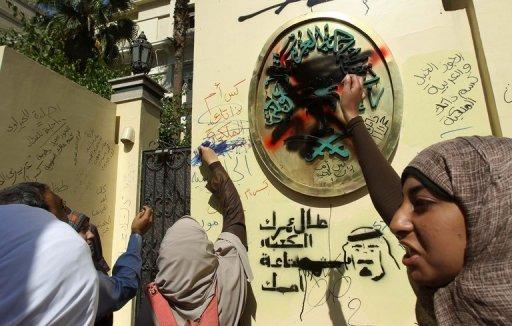The new anti-terror law has been widely criticised by international rights groups after its ratification by the presidency on Monday.
On Tuesday, deputy spokesperson of the US State Department John Kirby said in his briefing: “We are concerned that some measures in Egypt’s new anti-terrorism law could have a significant detrimental impact on human rights and fundamental freedoms.”
However, Kirby added: “We stand with Egypt in its fight against terrorism. And as Secretary Kerry said himself during the Strategic Dialogue in Cairo a few weeks ago, defeating terrorism requires a long-term comprehensive strategy that builds trust between the authorities and the public.”
Egypt’s Foreign Ministry spokesperson, Ahmed Abo Zeid, responded to those criticisms in an official statement on Wednesday, saying: “Those comments overlooked the law articles, and indicated that those criticisers did not thoroughly read the memo we wrote for them to illustrate the law articles.”
Meanwhile, international rights group Human Rights Watch (HRW) denounced the new anti-terrorism law’s ratification by the presidency on Monday.
“With this sweeping new decree, Egypt’s president has taken a big step toward enshrining a permanent state of emergency as the law of the land,” said Nadim Houry, deputy Middle East and North Africa director at HRW. “The government has equipped itself with even greater powers to continue stamping out its critics and opponents under its vague and ever-expanding war on terrorism.”
The new law took into account the objections of journalists regarding Article 33, related to the press. This article had previously stated that journalists were to face imprisonment “if they publish different content than official state information”.
The law has now been amended, and Article 35 reduced restrictions on publishing to military affairs, and specified that “forbidden” media content concerns only terrorism and counter-terrorism operations.
In such cases, information contradicting the Ministry of Defence could become a felony of “promoting false news”, subject to a fine of between EGP 200,000 and EGP 500,000.
Not only is such a fine impossible to afford for most journalists and media institutions, which effectively maintains the prison threat, but the law further states that the court could order that a journalist be banned from practicing the profession for a maximum period of one year.
The new law also gives prosecutors greater power to detain suspects without judicial review, and order wide-ranging and potentially indefinite surveillance of terrorist suspects without a court order.
Following the 30 June uprisings, a series of laws were ratified by the interim president, Adly Mansour, some of which were unconstitutional. In November 2013, Mansour issued the controversial protest law, which conflicts with Article 73 of the 2014 constitution, allowing peaceful assemblies without prior security notification or monitoring.




